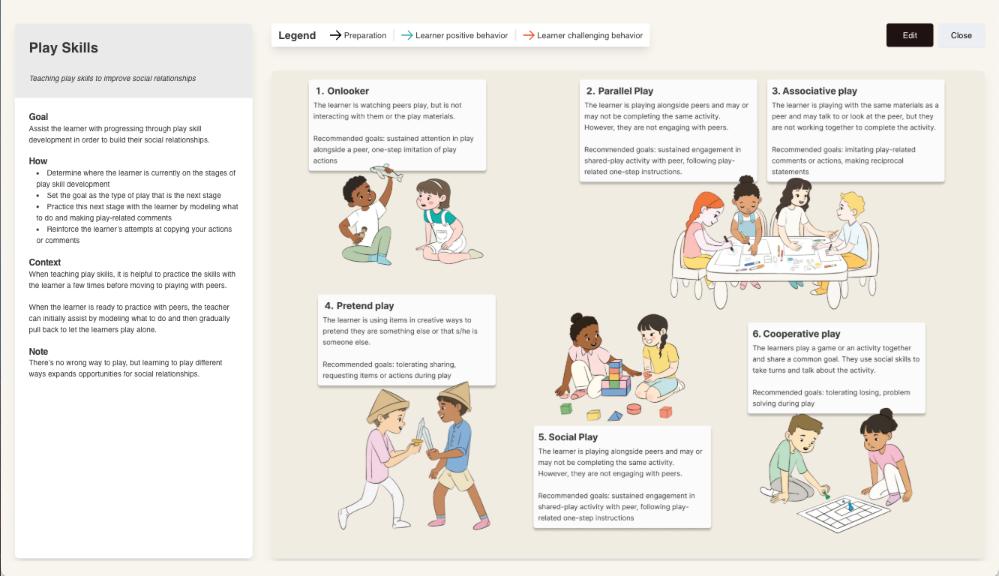
Play Skills
Stage-Based Play Instruction to Strengthen Peer Relationships
Explicitly teaching play—symbolic, cooperative, and everything in between—helps autistic and other neurodivergent learners move through the stages of play development and connect meaningfully with classmates. By modeling actions, narrating play-related comments, and reinforcing attempts, educators and families turn solitary or parallel play into shared, imaginative interactions that boost social growth.
Why use Play Skills instruction?
- Richer social communication. Research shows targeted play training increases peer engagement and spontaneous language by 30–60 %.
- Greater flexibility and creativity. Guiding learners through successive play stages expands the variety of activities they can enjoy, reducing play “ruts” and fostering imagination.
- Smoother peer inclusion. Practicing with an adult first—and then with classmates—lowers anxiety and leads to longer, more cooperative play bouts on the playground and in therapy.
What you’ll unlock inside BIP Visualized:
- A step-by-step overview of how to use this evidence-based strategy
- Ability to customize images and descriptions to individualize for your learner
- Aligning, printable visual resources to support teaching and generalization
- Ability to add this visual strategy and more to build a custom-made visual BIP tailored to your learner’s needs
Start your free trial to access the Play Skills strategy and build a personalized, team-friendly visual Behavior Intervention Plan today.
Access Resource
